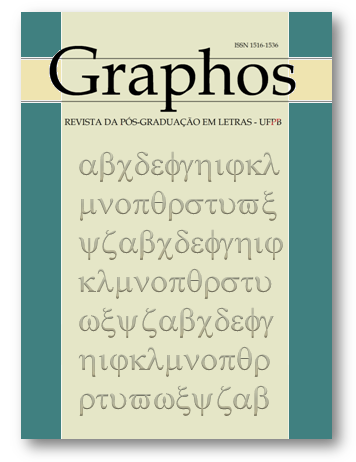A linguagem da mística medieval cristã no poema Coloquio de amor de Teresa d’Ávila
Keywords:
Middle Ages, Mystical literature, Teresa of AvilaAbstract
The production of writings belonging to the Western Christian Mysticism in the Middle Ages was significant. Especially in monasteries and in beguinarias (in the case of production by women), this practice was intensely sought and this fact resulted in a significant number of manuscripts. The existence of these, its contents and different aesthetic, elucidate further discussions about the medieval period, causing reformulation of concepts and, consequently, bringing a rewriting of historiography. It is interesting to say that in the writings mentioned one can find peculiarities worthy of being considered by literary studies and that many of them continued to be used in religious texts produced over the centuries that may be included, classically, in Modernity. Thus, this article highlights some elements of Western Christian Mysticism own Middle Ages present in the poem “Coloquio de amor”, written by Carmelite nun Teresa of Avila (1615-1682), such as the fact to present itself as the language of an experience, plus deal on the spousal love between a human soul and the divine Beloved. In support of the proposed reflections, the contributions of Juan Martín Velasco (2009) will be considered on some aspects of mystical language, the opinions of Jacques Le Goff (2010) regarding the conception of the Middle Ages and the notes of Lieve Troch (2013) referring to the medieval Christian mystic as a very common experience to the religious women of the Middle Ages.
Downloads
References
BÍBLIA DE JERUSALÉM. São Paulo: Paulus, 2012.
HADEWICH DE AMBERES. Deus Amor e Amante. [Tradução de Roque Frangiotti]. São Paulo: Edições Paulinas, 1989.
JESUS, Santa Teresa de. Poesias. In: ______OBRAS Completas. 4. ed. Madrid: La editorial catolica, 1974.
JOHNSTON, William. Mystical Theology: the Science of love. 2. ed. London: Harper Collins Publishers, 1996.
LE GOFF, Jacques. Uma longa Idade Média. [Tradução de Marcos de Castro]. 2. ed. Rio de Janeiro, 2010.
ORDEM DOS CARMELITAS DESCALÇOS. Fundamentos, governo e presença no mundo. Disponível em:<http://www.carmelo.com.br/default.asp? pag=p000045.> Acesso em: 16 out. 2011.
TROCH, Lieve. “Mística Feminina na Idade Média: historiografia feminista e descolonização das paisagens medievais.” In: Revista Graphos. Revista da Pós-graduação em Letras da UFPB. Volume 15, no.1, 2013. Disponível em: <http://www.google.com.br/url?sa=t&rct=j&q=&esrc=s&source=web&cd=1&ved=0CCsQFjAA&url=http%3A%2F%2Fperiodicos.ufpb.br%2Fojs%2Findex.php%2Fgraphos%2Farticle%2Fdownload%2F16324%2F9352&ei=WUmNUrJ2pKzIAfWgKgB&usg=AFQjCNHII3gIG07z05Hl7jATrWsF8Ds9g&bvm=bv.56988011,d.aWc>. Acesso em 20 nov. 13.
VELASCO, Juan Martín. El fenómeno místico: estudio comparado. 3. Ed. Madrid: Editorial Trotta, 2009.
ÉPINEY-BURGARD, Georgette. ZUM BRUNN, Émilie. Mujeres Trovadoras de Dios. 1ª ed. Barcelona: Bolsillo Paidós, 2007.







